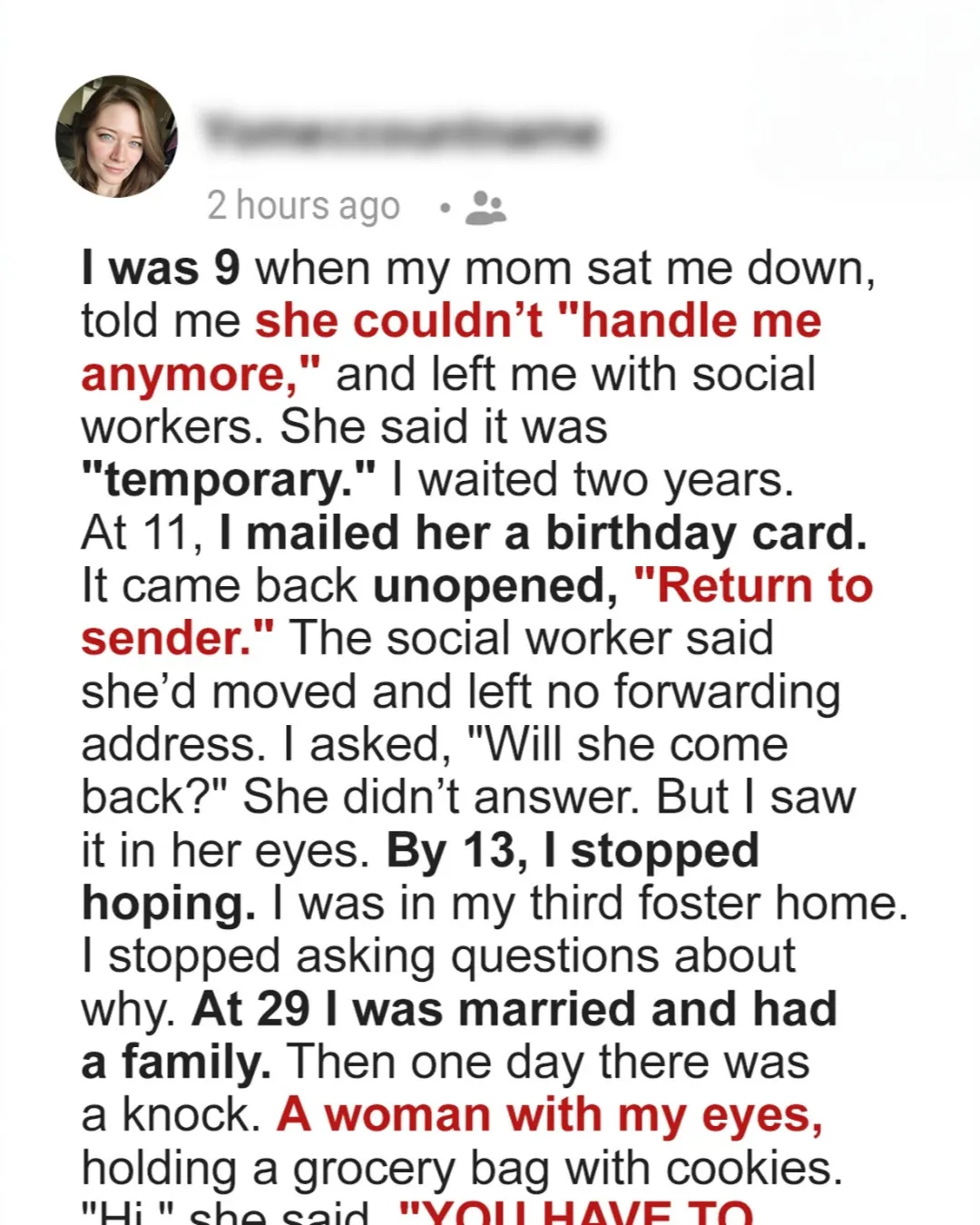When I was nine, my mother sat me down and said the words that would shape the rest of my life: “I can’t take care of you anymore.” The next day, a social worker showed up. My clothes were stuffed into a garbage bag. My mom promised it was temporary. She never came back. I spent years in foster care, holding onto a lie I told myself: she just needed time. But when my birthday card to her came back stamped “Return to Sender”, I stopped hoping.
By the time I was 27, I had my own family a husband, a daughter, a life I built from scratch. I swore my child would never feel the abandonment I had. Then one evening, there was a knock on the door. An older woman stood there, worn down, holding a grocery bag. “You have to help me,” she said. It took me a moment, but I knew those eyes. My mother. After 20 years, no apology, no explanation just need.
I let her in. Maybe it was closure I wanted. Maybe healing. But the woman who moved into our guest room quickly reminded me why I’d buried her memory. She made passive-aggressive comments, avoided accountability, and even tried to turn my two-year-old daughter against me with twisted stories about my childhood. The final straw? I overheard her whispering to my daughter: “Sometimes, you have to step back from people who hurt you. Even family.”
That night, I packed her things in a garbage bag the same way she packed mine. I told her to leave. She said I’d regret it. I told her: “Love is what matters, not blood. And you gave up the right to mine a long time ago.” Weeks later, I sent her a birthday card. No return address. Inside, I wrote the words she once said to my daughter: “Sometimes, you have to step back from people who hurt you.” She may never get it. But that’s okay. Because the cycle ends with me.
